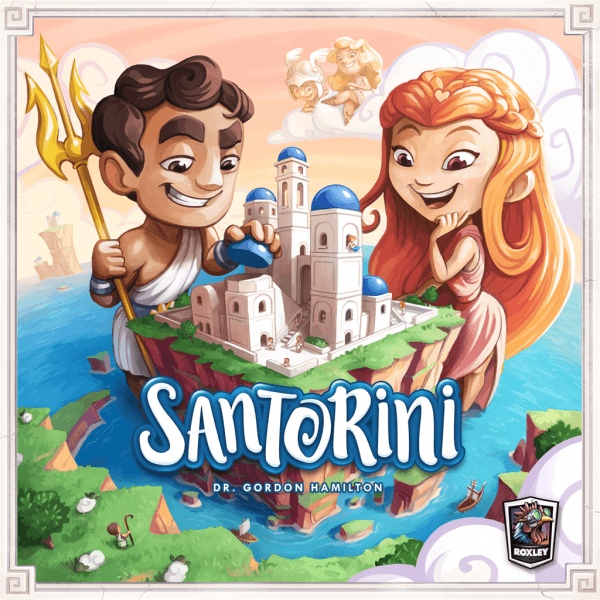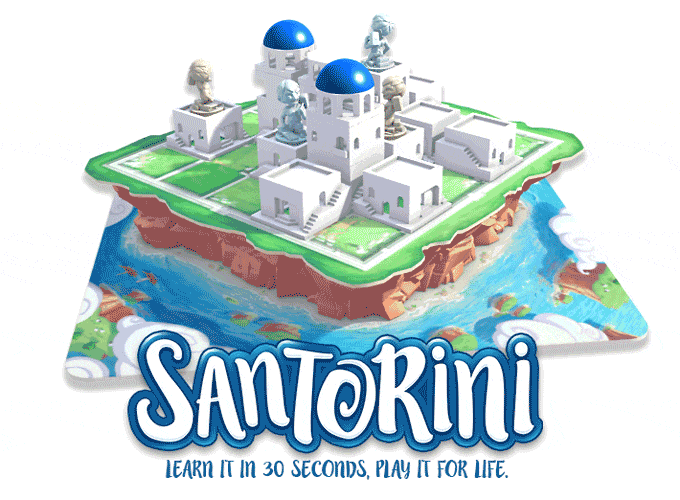Building Up to a Win: A Review of Santorini

(Note: this is a review of Roxley Game Laboratory's original edition of Santorini.)
When you pick up Santorini for $49.99, you want to immediately hope you’re going to love it. With the game’s clever 3D board dressing up a simple 5 x 5 grid and the 72 plastic building parts, you already feel like you got a good value. The presentation keeps it top-notch with the sculpts for the three pairs of chibi-style playing pieces (called builders) and the art on the 30 god cards. It’s a pretty game, but you hope that same level of excellent focus on the production values were mirrored in the game design.
Two to three players (with a 4-player team variant) start play with an almost Checkers-like simplicity. You move one of your two playing pieces into an adjacent space. For elevation purposes, they can move to the same level, step up one level onto a building part or drop down any number of levels from a building.
Then you place a building part adjacent to your moved builder. If there is already a part there, add the next level, with the final part being a dome on the fourth level and thus making the building a dead space and an obstacle in play.
The win condition is to either place one of your builders on the third floor of a building or force your opponent to have no place to move or build.

At first glance, this seems like a fairly light, but pretty game. The twist comes with the final phase of setup where everyone draws a random god card.
These card add a new rule to the game, usually it’s a power (at the start of your turn, you may leapfrog one of your opponent’s builders over the other half of their pair) or a restriction that is enforced on your opponents (they can’t enact their win condition on the outermost squares of the board), but the cards could sometimes put the restriction on you (if you have two builders at different elevations, you must move the lowest one). These insidiously simple additions, however, add a deep tactical layer. A Santorini game can start light-hearted — soon enough, though, it will turn into an intense, quiet game of chess-like moves.
The random nature of the cards can sometimes produce matchups that don’t favor your style, but nothing stops players from agreeing to make a smaller deck of preferred godlings to pull from. There’s a good variety and everyone’s loved/loathed cards will come down to personal taste.
In that regard, Santorini is more like a board game engine in the vein of Kingdom Builder where a solid set of basic rules and randomization create a new variant game, keeping things fresh and replayability high. This is something that should not only be on your gaming shelf but snuck into the closets of your non-gaming family members next to other gateway games like Ticket to Ride, Tsuro and, of course, Kingdom Builder.
It’s a good game and a good textbook example that Kickstarter is still a viable means of bringing quality games to market at reasonable prices.
Four out of four building levels.







